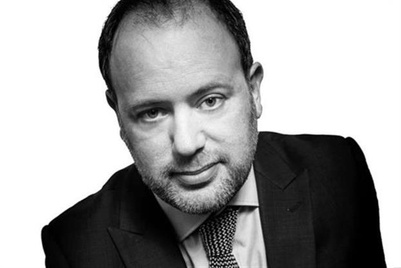
Reebok, the troubled subsidiary of adidas, recently caused its parent company’s 2012 net profit to slump by 14.2 per cent to US$683 million. The drop was the result of a $346 million write-down following last year’s fraud investigation at its India unit; the 2012-13 strike in the National Hockey League; and the loss of a 10-year American football contract.
The brand, which also closed down its Hong Kong office at the end of 2011, seems to have faded in the consumer mind and fails to stand out in its category.
Nevertheless, adidas, which bought the British brand in 2005 for $3.8 billion, says it will stick with Reebok, even though the German sports group was forced to cut its 2015 sales target for Reebok by a third to $2.55 billion. The brand had a character. Can it regain it and turn its fortunes around?
|
FACT FILE
|
 DIAGNOSIS 1
DIAGNOSIS 1
Robert Allen
Associate director of brand strategy
Interbrand
Sport has blended into the world of celebrity, with stars like David Beckham becoming fashion leaders. It has been infused with street style, as sports casual has become part of everyday clothing. It continues to innovate, and evolve, reflecting sport’s shift from part-time profession to cultural centrepiece.
All of these changes offer new positioning territories for brands, including Reebok. However, despite this apparent wealth of opportunity, the category shares a characteristic with competitive sport itself—that you’re either first or you lose.
Authenticity is crucial for brands, and this is where Reebok has struggled. Nike is the category’s leading brand, combining star endorsements with product performance. The adidas brand has a street fashion flavour that appeals to a younger, more style-conscious consumer. Smaller brands like Asics take a niche approach, basing the brand on its expertise in footwear.
Next to these propositions, the Reebok brand is generic. It needs to own a specific positioning around an authentic core; and the clue to this could be a quietly stated line on its website: “The courage to challenge convention.” It needs to live up to its own positioning and target those who understand the link between athletic and personal success, and an attitude that welcomes fresh, different ideas.
 DIAGNOSIS 2
DIAGNOSIS 2
Andrew Thomas
Managing partner
Equus
As Kodak and Nokia have demonstrated, being a global giant of a brand with an illustrious history is no guarantee of ongoing success. Now Reebok is experiencing a similar decline.
The roots of the problem lie in its current positioning. On its website, Reebok seems to forget “who we are”. Instead, it looks and reads like a Nike wannabe. It shows adidas doesn’t understand the brand since acquiring it in 2005 and has lost any sense of its heritage. Not only is Reebok a British brand, it can (like Levi’s) lay claim to being both the oldest brand in its category and the inventor of that category.
Reebok used to create new markets or lead the market with its inventions, including the ‘Freestyle’ aerobic shoe and the Pump, but somehow this heritage has got lost.
Reebok should differentiate itself, like Levi’s, as ‘the originals’, and ‘the innovators’, and then prove it by continuing to excite the market with ground-breaking products, rediscover its identity and tell the world its incredible brand story.
Perhaps to reinforce its heritage on its 120th anniversary in 2015, Reebok could revive the founder’s name Fosters to brand a separate, more high-end line. They could also perhaps recruit a modern version of Liddell or Abrahams—Olympians with a reputation for ethical values—such as Usain Bolt or Bradley Wiggins, to endorse the new line.
|
This article is from the May 2013 Campaign Asia-Pacific Subscribe online or call +852 2122-5227. |


+(900+x+600+px)+(3).png&h=334&w=500&q=100&v=20250320&c=1)
+(900+x+600+px).jpg&h=334&w=500&q=100&v=20250320&c=1)
.jpg&h=334&w=500&q=100&v=20250320&c=1)


.jpg&h=334&w=500&q=100&v=20250320&c=1)
+(900+x+600+px).png&h=334&w=500&q=100&v=20250320&c=1)

+(900+x+600+px)+(1).png&h=334&w=500&q=100&v=20250320&c=1)





.jpg&h=268&w=401&q=100&v=20250320&c=1)


